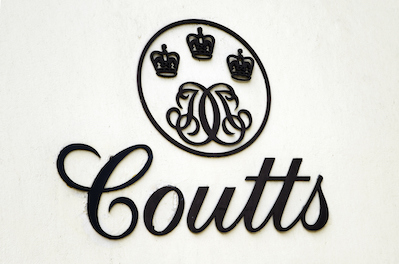Grant Shapps has condemned the “absolutely disgraceful” decision by Coutts to close Nigel Farage’s accounts.
New documents, provided to The Telegraph newspaper by the former UKIP leader, appear to show the bank opted to close Mr Farage’s account after it was decided his views “do not align with our values”.
A dossier detailing Mr Farage’s comments about Brexit, his friendship with Donald Trump and his views on LGBT rights was considered by a reputational risk committee.
The former Brexit party leader was ultimately “exited”.


Writing in The Telegraph, Mr Farage railed: “I believe Coutts targeted me on personal and political grounds, for its report reads rather like a pre-trial brief drawn up by the prosecution in a case against a career criminal.”
The BBC had previously suggested the Brexit leader fell below the financial threshold needed to hold an account with Coutts.
Mr Farage has now called on the BBC to apologise for their reporting on the story, confirming he will be complaining to the corporation.
He said in a tweet: “[Will the BBC] be apologising for their reporting on this story? … The BBC must correct their original story about me. I will be making a complaint”.
Responding to the news this morning, Mr Shapps, the energy security and net zero secretary, told Sky News: “I think it’s absolutely disgraceful. I don’t have to agree with everything Nigel Farage says to recognise that free speech is a very, very important part of our domestic life.
“What’s happened through some of these banks with the regime which is known as the PEP regime is really actually scandalous. People shouldn’t have their banks closed because of their political or any other view, and banks shouldn’t be refusing to open accounts on that basis as well.”
Mr Shapps was referring to Politically Exposed Persons or PEPs, who are individuals around the world deemed to “prominent public functions”. Currently, the law recognises the risk of PEPs abusing their positions for private gain and using the financial system to launder the proceeds of this abuse.
UK law requires “gatekeepers” to the financial system to perform enhanced checks on PEPs, their families and their known close associates. Firms need to have measures in place to identify PEPs, assess the level of risk they pose, and manage the relationship appropriately.
Asked if the law might need to change in light of Mr Farage’s case, Mr Shapps continued: “It may be. We’ll do whatever is required. But I think in the first place, the Financial Conduct Authority needs to get a grip of this.
“And I know that ministers in the Treasury, Andrew Griffiths in particular, is actually acting on this, so we can expect to see more.”
This morning, shadow levelling up minister Alex Norris was also asked if MPs should legislate on the matter.
He said: “Details are just emerging. We do know the regulator for banking is rightly challenging — I’ve spent the week battling my bank on PEP restrictions – and it’s right they’re doing the process properly.”
He added: “I’d want to know what problem we were solving before we were saying that new legislation was necessary, and I dare say the facts we will soon find out in the days and weeks to come.”
Commenting on Mr Farage’s run-in with Coutts earlier this month, prime minister Rishi Sunak said the right to free speech had to be respected “and that should not be an excuse to close anyone’s account”.
In his Telegraph piece, Mr Farage wrote: “The most extraordinary comments of all are the areas of the report talking about me ‘not aligning with [Coutts’s] views’ and suggesting I must be barred because I do not support the diversity, policies and ‘purpose’ of Coutts, as though Britain is a political regime and I am a dissident”.












